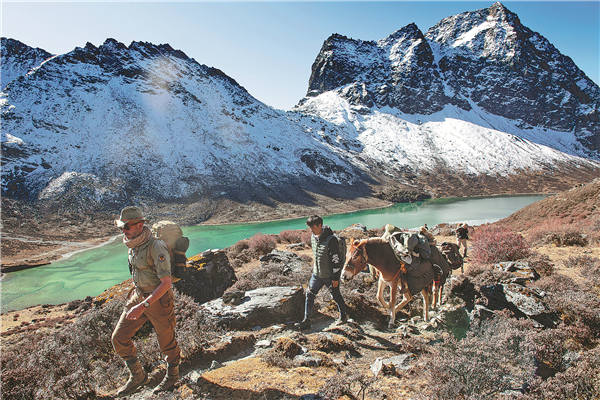

The company has still managed to organize five horse caravans this year, despite difficulty due to the pandemic and the tragic death of his business partner, De Penfentenyo, following an accidental fall from a balcony.
It was a huge loss for De Slizewicz, who says that he had considered closing the business. However, his partner's widow Qi Lian came to his rescue and persuaded him to keep the business open.
"She's a strong and smart woman, and I'm so proud of my team," De Slizewicz says.
The popularity of the glamping business has also helped many Tibetan people increase their income over the years.
Some have offered tour services, taking on roles such as guides and chefs, while some have raised horses for caravanning.
Yang Yang has worked as a guide for De Slizewicz since 2016.
In addition to an income bump of around 30 percent compared with his old job, Yang says he's learned a lot.
The 32-year-old Shangri-La resident has picked up French and numerous outdoor skills to be able to receive travelers to the region.
"De Slizewicz has also taught me how to pay attention to detail and study the culture around the ancient Tea Horse Road for our guests," Yang says.
To date, locals who work for De Slizewicz attribute 40 percent of their family income to the glamping business.
De Slizewicz says he has made friends with many locals, who have helped his foreign guests better understand Yunnan and the Tea Horse Road.
De Slizewicz was finally able to return to China last month.
"I can't wait to get back to business," he says, adding that he is considering expanding his business to more mountainous areas in Sichuan province.
"About a decade ago, Chinese people were not big fans of outdoor adventure travel, but they've shown increasing interest in going to the wilderness," he says.
"So the market potential is good."